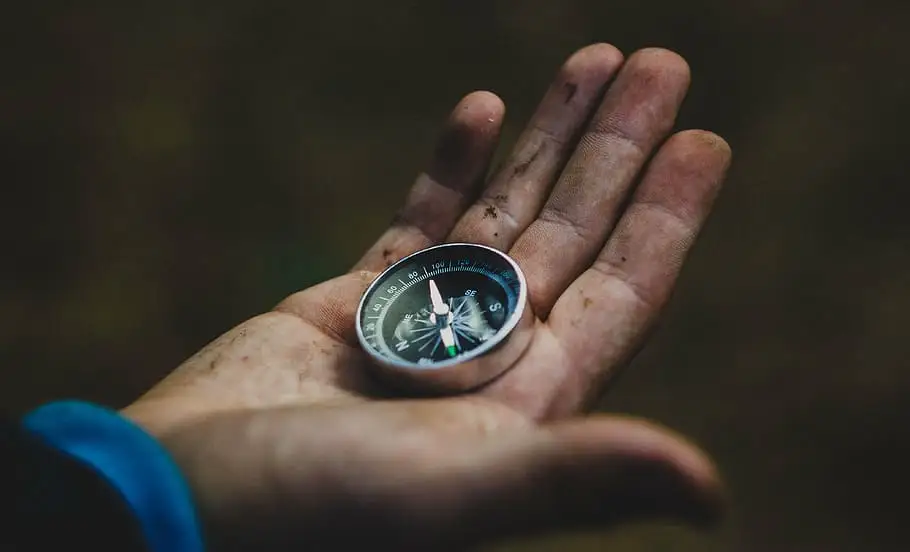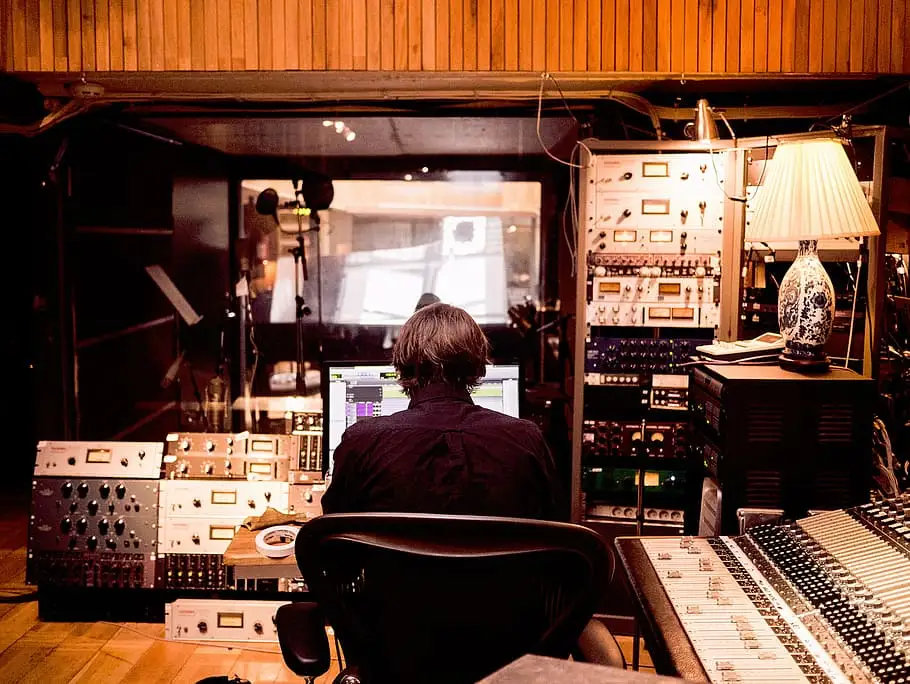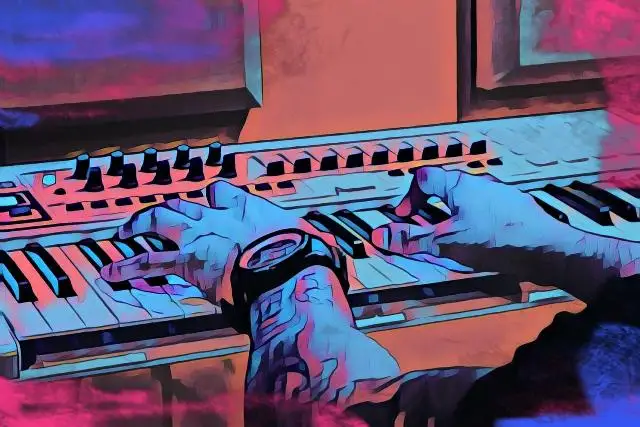Ever since the first ever audio recording was made back in 1859, or even since the first basic phone was constructed ten years prior, people were obsessed with improving the quality of the data recorded or transferred.
The word “producer” in the musical context would arrive much later of course, yet at the turn of the century, the music industry was already establishing its relevance. Italian tenor Enrico Caruso became the first real star of the industry, already making millions from the sales of his records.
Fast forward some 120 years, and the technology is so advanced and the industry so digitalized, that one could expect the appearance of the first entirely independent AI producer to take place tomorrow. Yet, for a beginner producer, who currently has only enthusiasm and love for music, the question is the same, as it was for the producers since the industry’s very dawn:
Where do I even start?

In an odd way, one might rightfully conclude that nowadays a start from scratch is somewhat more confusing than the one back in the analogue age. Sure, hardware was a nightmare to move around and stupendously expensive. Yet, today on the other hand, the options at hand are literally limitless, leading the beginner producer to scratch their confused head to oblivion, while searching for music production tips.
And so, the need to take it step by step and in several contexts (i.e. not only related to the producing process itself) is quintessential for anyone who is serious about mastering the artistic craft of music producing.
But Valuable Info Also Comes From Experience Within the Music Industry...
Yeah. But is it reasonable to spend hundreds of hours on insisting to learn from experience, when the info can be acquired by making a few clicks and reading online articles? Thought so too, so let’s keep reading.
Physical Health of the Music Producer

It might seem odd to start a music production tips blog with non-technical advises. But on the other hand doesn't it all depend on the music producer's well-being?
Rest Well
If taken seriously, music production is also about productivity, among the other things. That in turn depends on the management of the stamina, fatigue and the producer's general physique.
Every effort made in order to be more productive has to take human nature into account. Take breaks. Even if you need to just touch the saturation of the snare drum, thinking it'll be done in two minutes.
Body Posture
It is seldom mentioned that while comfortable, sitting in front of the monitor is demanding for the music producer. The fact that your chair suits your anatomy will not help much, if you sit in it for hours on end.
The correct body posture is the source of longevity. Take the best posture in the chair, yet make sure to get up and walk a few steps with a straight back at least once every hour.
Read (after the session)
Reading is a beautiful activity in every way and context. Music production is a focused effort, more so than many other crafts and arts are.
When finishing the session, take an extended break and open a book. Read. Just for sake of reading, if not for inspiration.
Physical Exercise (before the session)
This one speaks for itself. As the producer is almost static while working, it's essential to be physically active before working. Anything goes: a walk, a run, a cardio workout (so long as it's not overly tiring and demanding).
While music production tips are inevitably related to the studio session, please note that what precedes it (the session) is of equal importance.
Pick a Hobby if You Don't Have One
Anything will work. Note however, that YouTube tutorials on producing do not count as a hobby. Make sure to pick something unrelated.
Along with the resting and physical exercises, hobbies provide a way to move away from the thing that occupies most of your time, thus making the work itself more productive.
The General Approach and Things to Bear in Mind

Most things related to the successful initiation of a music producer's career are character traits and/or things related to acquired habits.
As an especially demanding field, music production really depends on the correct approach to things and sticking to them in every situation, as needed.
Perseverance
This, one might say, is mostly a character trait. Yet on the other hand, music production tips are sterile in and of themselves, if the music producer isn't gonna be attending and intending to persevere.
And perseverance means a lot of things. From patience when things are (or appear to be) complicated, through persistence through truly challenging projects, to the readiness to invest your own money. Just hang in there.
Perfectionist vs. Overly Self-Critical
I'd say the line is very thin here, so one should be aware that at times, what they consider a quality (striving for perfection) might be a block on the road if overemphasized.
The music production process is exactly that - a process. And it has to lead to a closure. Remember that many times a project is fine as is. Do not seek a problem for every solution.
Know What You Don't Know
An exceptionally important trait. Even learning simple crafts or skills is based on admitting and documenting the unknown, so that it can be (re)visited and learned in due time.
Some things can be grasped and learned at a single go, depending on their complexity. Remember that music production has many depths, a large number of which aren't accessible for a beginner. Be patient.
Tomorrow is a New Day
A producer's day might seems successful, only to bring a feeling of disgust tomorrow, when yesterday's work is revisited. On the other hand, yesterday's hopelessness, if attended and managed correctly might be inspiring and motivating.
Music production tips should always consider the "tomorrow" perspective. And the awareness of such situations and their correct management is obviously of greatest importance!
Intuition Evolves - Do Not Overrate It (especially at the start)!
The fact that an idea feels correct or even if it sounds good when applied ought not be taken as a dogma. New techniques are being brought about every day. Make sure to avoid delving too deep into the comfort zone.
Learning is a win-win process. The honest feedback received both leads the music producer to open-mindedness, while increasing their overall skill set as well.
Equipment and Surrounding

Digital audio workstations (DAW) made things much easier for the producers, especially the beginners among them. That said, some hardware still needs to be acquired, such as studio monitors, headphones , an audio interface and mikes, for starters.
There are some typical software preferences for certain genres, such as the popularity of FL Studio among the electronic music production aficionados, or among hip hop artists for example. Yet, the music production process is specific for each individual, so the detailed preferences will always vary.
Balanced Gear (by price)
Yeah, everyone knows that shitty headphones are not an option. On the other hand, the best ones in the world aren't either (at least for most beginners). So, what matters is whether or not your gear can meet the industry standards, broadly speaking.
Music production is not about the gear, yet it can not do without it. Thankfully, fairly decent gear can be purchased at consumer level pricing. In the producer's future, music gear is sure to not only be updated, but changed completely and entirely.
Remove the Distractions
Do not bring the troubles in yourself. You'll often hear music production tips speaking of how a producer gets stuck due to writer's block or fatigued ears. Fresh ears are essential of course, but at times the blockage is simply due to distractions.
Your phone ought to be considered a foe in this context. And your studio's walls and work desk should be stripped of memorabilia. Make music, not snore.
Studio Acoustics & Soundproofing
Before even completing the hardware setup, it is of paramount importance to apply acoustic treatment to the studio, in order to fine tune (or dampen, rather) the studio's acoustics.
The recording input and all output of all the audio equipment is affected by the studio's noise and reverberation. By far the the worst nightmare of any music producer.
Budget well
As income starts entering the scene, so do the appetites and ambitions, which is fine of course. Make sure to make a case for gear upgrade. Is it really necessary at this time?
Never forget that music production and beat making and mixing aren't a product of the gear. Don't invest all your income just cause you heard about some gear updates from other producers.
Prioritize
So you definitely need a second computer screen, a new audio interface, and you also need a midi controller? Fine, but if you only have funds for one of them: prioritize instead of going for all at all cost.
Music is a story, and no story leaves a good impression when rushed. In due time, with patience and devotion things will align. Don't rush it, just prioritize.
Composing & Sound Design

While sound design should be a separate process, the purpose of designing sounds is to be able to incorporate them in composing/making music. Learning music production is based on learning about sound design and composition first.
Learn music theory. Other artists might beg to differ, but a solid - albeit basic understanding of music theory is a necessity on the long run. It will come in handy regardless of what genre you're most fond of and working in.
Introduce Asymmetry
Introduce variations in the form, including the transitions. If you only work with fixed 8-bar sections, it won't really matter if you use original sample packs, a fancy synth patch, a smooth synth bass and what not...
Explore and vary the length of your own melodies. With this you'll be able to achieve transitions and variety even when using the same sounds throughout.
Listen and Rest Rather Than Try Over and Over
Musical ideas come more so from listening than from trying over and over. Feel stuck? Listen to a few of your favorite songs and focus on what you're after, be it a synth lead idea or a sub bass EQ settings, or anything else under the sun.
Get back to your work after having acquired fresh ideas. While listening always helps, sometimes it's enough to just take a break, so make sure to combine both.
Research and Learn All (classics included)
Beat making or composing synth leads depends on fresh ideas. Music is about originality, which is only achievable through research and learning (dare I say: studying?).
At times a 300 year old tune will spark inspiration. So make sure not to ignore the classics also. Study them in depth if you have the theoretical knowledge to do so.
Historical References
Hop hop artists often refer to musical history, sometimes directly quoting it through their sample pack. Production skills are certainly enhanced when one knows how things evolved.
Good music is a mix of what has predated it, the general cultural influences and the personal touch. A balance of these makes a recipe which will always be fresh.
Practice Transitions Between Genres
Pick two totally random examples from two different genres. Try to produce a smooth transition between them. What sounds good will often be a mix of seemingly not mixable ingredients.
If you can't produce a smooth transition - just imagine it. It's fine really, cause on the long run it will save your music from falling under fixed genre labels. Later, when your skills match your appetite - try again and produce the transition.
Mixing

Always produce music as you please, be it hip hop or any other music genre or style out there. While doing so, never forget that mixing is a crucial part of it, and a masterful artistry in its own right.
For starters, assign a separate channel for all the plug-ins you think you'll need. As you organize things, save presets and make sure to remove the things you don't need, thus avoiding clutters.
Reference Track
The importance of reference when mixing in general cannot be overstated. Hence, good music production tips always bring forward the necessity of a reference track when mixing.
Pick a reference track you like, press play and take note of the exceptionally good sounds and the fine tuning being made. Sometimes just imitating a solution is the best solution there is.
Make Lists of Favorites (plug-ins, effects, entire songs even...)
Take a notebook and a pen (yeah, the old-school way). List your favorite plug-ins for each separate effect. Favorite reverb plug-in, delay plug-in, compressor, limiter... Make a great music list also. List songs you love, also noting the effects you love about them.
Try to incorporate what you found elsewhere in your own sound. Make sure to list the YouTube channels you most revere as well. these lists will come in handy on daily basis, saving you tons of time and avoiding frustration.
Think Before Taking a Demanding Action
Good music producers typically know what they are after before going on and trying it. A beginner should at least think about the options at hand before taking action, especially if said action seems complicated and demanding to them.
Sometimes a solution that sounds good and satisfying is achievable in a more straightforward fashion. Simplicity is often the key, exceptionally useful among the plethora of music production tips out there.
Distort (saturate et al.)
What if I told you that we can distinguish the tone of a trumpet from that of (say) a violin simply because they are differently naturally "saturated"? Tone color comes from adding overtones, which can be subtle as is the case when using saturation, or quite intense, as when using distortion. Fun fact: saturation is also a form of distortion.
Let's distort then. Often, the mix will sound uninteresting simply because it's too devoid of color. In music production, sound design is heavily based on distorting. Play a sound on your laptop speakers, record it and play the recorded, just to check its signal to noise ratio or general distortion effects seldom thought of.
Nuance through contrasting
Learn what to accentuate and when, and by what amount. Music production is about creating space for contrasts within the audio spectrum, as much as it is about the music itself.
EQ in accordance with the dynamic range and sound specifics of each respective stem. Pan carefully, do not over-compress. Make room for the all the stems and the effects added to them, as well as headroom for the mastering stage.
Mastering

Finishing music is a step closer when mixing is done. A mastering engineer should only enhance the already beautiful mix. Otherwise, if too much work seems to have been left over and nothing works - it's "back to the drawing board" time.
Check out your favorite artists' albums, to acquire overall (albeit non-verbal) music production tips related specifically to mastering. Never forget that mastering is mostly about raising the volume to industry standards, though it's a lot more than simply turning up the knob.
Describe the Desired Result in a Non-Trivial Paragraph
Spend a few minutes describing what you're after; what you have on the master bus, does your default mastering chain need tweaks and so on. Then, focus on how what you're after might be achievable. Write that down too.
You are closing in on completing the music production process. Keep the pace, keep the patience. You're almost there.
Know its place and purpose
Mastering is the completion of a process, not a place to be overly creative. Making music (as in being freely creative) precedes it. Ask for an advice if you feel like further mixing is needed; you'll need to rest your ears often anyway, properly managing the ear fatigue.
Remember that even abandoning something does not equal a resignation; one of the best among the music production tips is exactly that: abandon a path that leads nowhere.
Compare and Compare Again
Other people's music is always a good starting point. That's not to say you shouldn't do things your own way, yet remember that music production is a never-ending learning process.
Note that most things are already set. Each stem's stereo width , the compression , the side-chaining, pre delay settings... Focus primarily on editing the master bus. Turn a knob. Compare.
General Subtlety
The top music producers are famous for their attention to detail, and music production in general is strongly related to subtlety, especially during the mastering stage.
Be subtle. The only plug-in whose knob can be turned up by a large amount is that of the limiter, and that will depend on the space provided during the mixing stage. All the rest is about nuances.
The "It's Fine" Moment
It's very important to know when to conclude the project. When listening to your final export, other producers might think otherwise. Alas; it might not sound good to you at some point in the future too. But get on with it: when it's time - it's time!
The most crucial of the music production tips is exactly that: to know when it's time to stop and just export the final audio file. Rest well, then start a new producing project. Complete it. Repeat!
Search, Explore, Do Not Fear, Always Move Forward!

Music, music, music..! Keep searching for an original sound, getting a grasp of what best describes your own beat making, your own music. Consult other producers (bore them to death for stereo width even) seeking useful music production tips. Sometimes the atmosphere alone will suffice; being in the same room with someone you hold in high professional esteem is enough.
Compose music. Write music. People's music. Electronic music. Any music. But whatever you do: please at all times enjoy the very process of making music!





